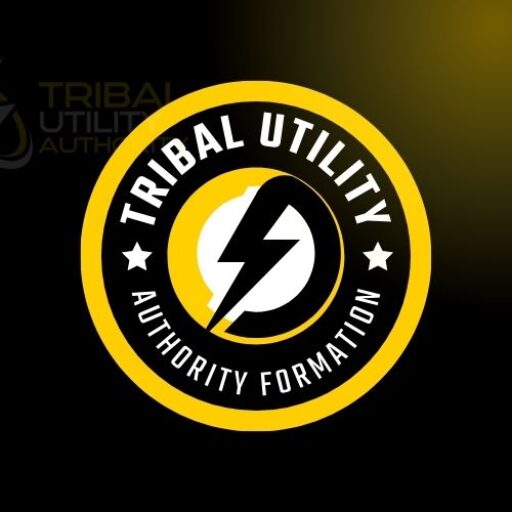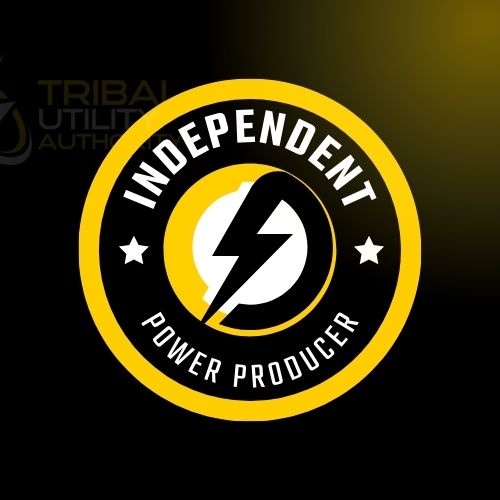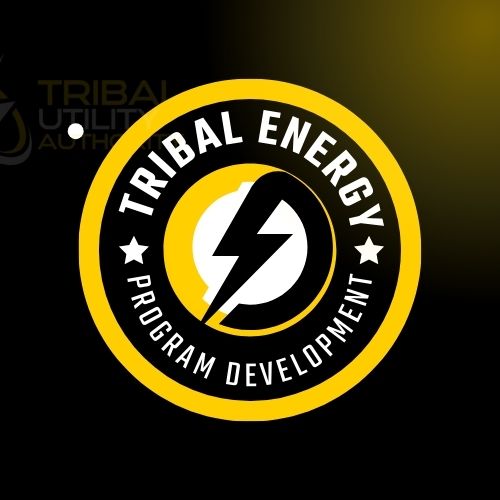Tribal Utility Authority Part XXXII: Tribal Utility Authority Managing Water Rights
Tribal Utility Authority | Powered By Red Power Energy
TUA Experts
+1 855-573-3769
Good >Better>Best Options
Managing Water Rights
Water rights management forms a cornerstone of tribal utility operations, combining centuries of traditional knowledge with modern legal frameworks. The relationship between tribes and water resources extends far beyond simple utility service, encompassing cultural practices, environmental stewardship, and sovereign rights. Effective water rights management requires a deep understanding of both historical context and contemporary requirements while maintaining a focus on long-term community needs.
The reserved rights doctrine, established through the historic Winters v. United States decision in 1908, provides the fundamental legal foundation for tribal water rights. This doctrine recognizes that when the federal government established Indian reservations, it implicitly reserved sufficient water to fulfill the purposes of the reservation. These rights maintain priority based on reservation establishment dates, often predating other water users in the region. Understanding these reserved rights is essential for protecting tribal interests while managing utility operations.
The scope of tribal water rights extends beyond basic domestic use to include agricultural, commercial, and cultural purposes. Traditional ceremonies, fishing rights, and various cultural practices often require specific water resources or conditions. Modern utility operations must balance these diverse needs while maintaining reliable service delivery. Many successful utilities develop comprehensive water management plans that incorporate both traditional uses and modern requirements while protecting tribal rights for future generations.
Quantification processes transform theoretical water rights into specific, enforceable allocations. Stream adjudication proceedings often involve complex technical analysis, historical research, and detailed documentation of tribal water needs. Settlement negotiations provide alternative paths to quantification, often offering opportunities for creative solutions that better serve tribal interests. Experience shows that thorough preparation and clear documentation during quantification processes help secure appropriate water allocations while preventing future disputes.
Technical requirements for water rights management demand careful attention to measurement, monitoring, and verification systems. Flow meters, gauging stations, and various monitoring devices provide essential data for rights protection. Regular calibration, maintenance, and data verification ensure accurate information for both operational decisions and rights defense. Many utilities find that investing in robust measurement systems helps prevent disputes while supporting effective water management.
Drought management takes on special importance in water rights implementation. Climate change impacts, increasing competition for water resources, and various factors affect water availability. Comprehensive drought plans must address both immediate response needs and long-term adaptation strategies. Clear protocols for water allocation during shortages help maintain essential services while protecting tribal rights. Experience shows that well-developed drought management programs help prevent service disruptions while maintaining community support.
Documentation systems provide crucial support for water rights protection. Historical records, usage data, water quality information, and various program elements need careful organization and preservation. It is essential to consider both immediate operational needs and potential future legal requirements when establishing documentation systems. Many utilities find that comprehensive documentation helps defend water rights while supporting effective management decisions.
Shared watershed management often affects tribal water rights implementation. Upstream activities, downstream obligations, and various stakeholders influence water availability and quality. Effective coordination with other water users helps prevent conflicts while protecting tribal interests. Regular communication, clear agreements, and various cooperative arrangements support sustainable watershed management. Experience shows that proactive watershed engagement helps maintain water rights while supporting regional cooperation.
Environmental protection requirements increasingly affect water rights management. Clean Water Act compliance, endangered species protection, and various environmental regulations influence water use decisions. Traditional ecological knowledge often provides valuable guidance for environmental protection strategies. Many utilities find that integrating environmental considerations into water rights management helps maintain compliance while protecting resources.
Cultural resource protection deserves special attention in water rights management. Sacred sites, traditional use areas, and various cultural elements often depend on specific water conditions. Clear procedures for identifying and protecting cultural resources help maintain traditional practices. Experience shows that strong cultural protection measures help maintain community support while preserving important traditions.
Legal frameworks surrounding tribal water rights continue to evolve through court decisions and legislative actions. Regular review of legal developments helps identify both challenges and opportunities affecting tribal water rights. Clear procedures for responding to legal changes help maintain rights protection. Many utilities find that staying current with legal developments helps protect tribal interests while adapting to changing requirements.
Interstate issues often affect tribal water rights management. River systems crossing state boundaries create complex jurisdictional situations that require careful navigation. A clear understanding of interstate compacts, federal requirements, and various agreements helps maintain tribal rights. Experience shows that effective interstate coordination helps protect tribal interests while preventing conflicts.
KEEP READING BELOW
WIDE RANGE OF TRIBAL UTILITY SERVICES
Do you need Tribal Solar Help ? Look no further!
Leading experts in Tribal Utility Authority formation, IPP development, and PPA negotiation. Transform your tribe's energy infrastructure with comprehensive solutions backed by decades of experience in Indian Country.
- Tribal Utility Authority Formation
- Independent Power Producer Development
- Power Purchase Agreement Negotiation
- Virtual Tribal Energy Office Implementation
- Energy Program Management




Groundwater management adds another dimension to water rights considerations. Aquifer characteristics, recharge patterns, and various hydrogeological factors affect groundwater availability. A clear understanding of groundwater dynamics helps protect tribal rights while supporting sustainable management. Many utilities find that comprehensive groundwater programs help maintain water supplies while preventing aquifer depletion.
Water quality protection is an essential element of water rights management. Source water protection, pollution prevention, and various quality maintenance measures require systematic implementation. Regular monitoring helps identify potential problems before they affect water rights. Experience shows that effective quality protection helps maintain usable water supplies while supporting tribal interests.
Future planning ensures that water rights support long-term tribal development. Population growth projections, economic development plans, and various future needs require careful consideration. Planning processes must combine traditional values with modern development requirements. Many utilities find that comprehensive planning helps protect water rights while supporting sustainable growth.
Integration requirements connect water rights with various utility operations. Treatment capacity, distribution systems, and various infrastructure elements need coordination with available water rights. Clear procedures help maintain operational alignment with rights limitations. Experience shows that effective integration helps optimize water resource use while maintaining compliance.
Climate change adaptation increasingly affects water rights management. Changing precipitation patterns, temperature impacts, and various climate factors influence water availability. Adaptation strategies must address both immediate challenges and long-term trends. Many utilities find that climate-conscious planning helps protect water rights while maintaining system resilience.
Funding considerations affect various aspects of water rights management. Infrastructure needs, monitoring systems, and various program elements require adequate financial support. Clear budget planning helps maintain necessary capabilities while controlling costs. Experience shows that effective financial management helps protect water rights while supporting sustainable operations.
Partnership development often strengthens water rights management capabilities. Technical assistance providers, research institutions, and various partners can enhance program effectiveness. Clear agreements help maintain productive relationships while protecting tribal interests. Many utilities find that strong partnerships help improve water management while leveraging available resources.
Technology integration supports modern water rights management. Geographic information systems, data management tools, and various technologies help maintain program effectiveness. Appropriate technology selection ensures effective application while controlling costs. Experience shows that proper technology use helps improve rights management while maintaining program efficiency.
Performance measurement helps evaluate water rights program effectiveness. Usage patterns, compliance metrics, and various indicators demonstrate program results. Regular evaluations help identify needed improvements while maintaining rights protection. Many utilities find that comprehensive measurement helps optimize water management while demonstrating program value.
Staff development ensures continued water rights management capability. Training programs, technical certifications, and various skill development activities help maintain necessary expertise. Regular training updates help staff stay current with changing requirements. Experience shows that effective staff development helps protect water rights while maintaining program sustainability.
Experienced Tribal Solar Experts
WE USE THE LATEST TOOLS & TECHNOLOGY
We provide reliable and quality electrical services to customers in the area. We specialize in all aspects of residential and commercial electrical work, from new installations and upgrades to repairs and maintenance.
We are a full-service electrical contractor dedicated to providing quality electrical services to both residential and commercial customers. Our team of experienced electricians are highly trained and certified.
TRIBAL UTILITY AUTHORITY CONSULTING
Expert guidance in establishing and managing tribal utility authorities, helping Native American communities achieve energy sovereignty through strategic planning and implementation.
TRIBAL UTILITY PROGRAMS
Comprehensive support for developing and implementing sustainable tribal utility programs that enhance community self-reliance and economic development.
TRIBAL UTILITY AUTHORITY FORMATION
Complete assistance in establishing legally sound tribal utility authorities, including regulatory compliance, governance structure development, and operational framework creation.
TRIBAL UTILITY AUTHORITY OPERATIONS
Professional support for day-to-day utility management, including system maintenance, customer service, billing operations, and performance optimization.
TRIBAL UTILITY AUTHORITY TECHNOLOGY
State-of-the-art technological solutions for modern tribal utility operations, featuring advanced metering, smart grid capabilities, and integrated management systems.
TRIBAL UTILITY AUTHORITY WORKFORCE
Specialized workforce development programs focused on building local capacity through technical training, professional development, and ongoing operational support.
Are you in need of an Tribal Utility Authority Expert ?
Look no further! Our team is here to help.
REACH OUT AND CONNECT
Get a Complete Quote
Your bridge to meaningful communication and personalized assistance, we're here to listen and assist you
Latest Tribal Utility Authority Updates
NAVIGATING IDEAS AND INSPIRATION

Tribal Utility Authority Overview
A tribal utility authority is a specialized administrative entity established by a Native American tribe to manage and operate essential utility services within their tribal

Tribal Utility Authority Formation: Harnessing Tribal Energy Sovereignty
Tribal Utility Authority Formation: Harnessing Tribal Energy Sovereignty Welcome to TribalUtilityAuthority.com, the definitive resource on establishing and operating Tribal Utility Authorities (TUAs) to achieve energy




